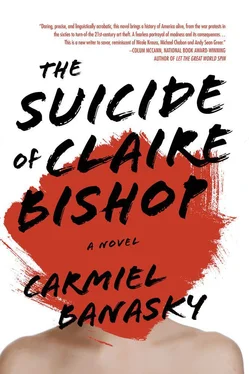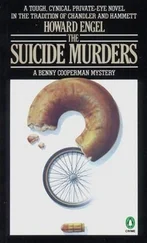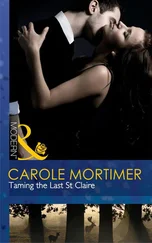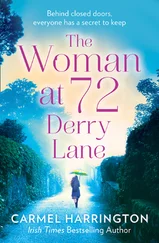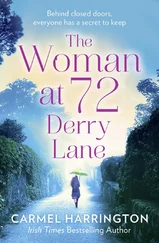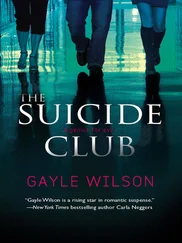“What about the apartment?”
“We’ll talk about it with our lawyers present.”
“I deserve ancillary relief,” Claire said as confidently as she could.
Freddie smiled at her. “You look nice today. Is that new?”
He wasn’t asking about anything in particular, just saying words. She wanted terribly to hurt him. But she lowered her gaze. She felt defeated. “When will this be over?” There was nothing she could say or do to injure this man.
“You’ll be fine,” he said. “Trust me.”
——
Jill and Carlos and Lawrence were in the kitchen, mixing a strange dough of all the ingredients they could find in her cupboards, making a mess. The phone was ringing.
“I need to speak with Jill,” said Claire. They looked at each other and Carlos gave a low whistle. “I’m not kidding. Out.”
“Just joshing around.” Carlos lifted his hands in defense and he and Lawrence went to the den. Claire waited until she could hear them laughing and scrounging about for a misplaced joint. She looked at the phone and it stopped ringing.
“Bad meeting?” Jill asked. He reached for her shoulder but Claire moved away. If it was impossible to hurt Freddie, it was sickeningly easy to hurt Jill.
“I need you to leave.”
“What? The kitchen?” She waited quietly until a look of understanding pulled down on his face. “Now? You can’t mean now.”
“I think it’s time. It’s been time. You’ll find another place.” Claire eyed the tile floor, scuffed and stained almost in a pattern.
Jill, nodding. “Hell, I dig it. After everything. After Bird and everything.”
“We always said two months, and it’s nearly been.” Jill said nothing. The phone began to ring again. “Freddie’s people are coming by the apartment tomorrow,” she lied. “I need to clean up by then. I only just found out.” Jill pursed his lips, still silent. “But we’ll still see each other. I’d still like to help out when I can. The cause, the boys. I mean it.” He roamed around her face until he caught her eyes and wouldn’t let go. Still he said nothing. She threw up her hands. “I don’t know why I’m arguing with you — it’s my home.” She let the phone ring. “Jill, please.”
He moved to the window. “Sure,” he said nonchalantly, fingering the blinds. “We have lots of other options. Other dens. Other women’s homes.” He turned to her. “Let me see the painting.”
The phone stopped ringing.
“That’s my father,” Claire said, gesturing toward the phone. “He calls to tell me about my mother losing the car keys.” He had called twice in as many days, always about Elsa, but Claire didn’t have time for that now.
“I know you, Claire. You don’t tell me a thing, and I know everything about you.”
“Then you’d know nothing if I started talking.”
Claire stood over the couch, watching Jill sleep. His forehead furrowed even then. But he breathed steadily, unburdened, and his lips, every now and again, would open and close as if he were giving a speech.
She didn’t want to lose him. She’d felt panicky as the boys had packed, her skin, her fingers buzzing like she were about to drop a vase from a great height.
His eyes opened softly. She gasped, couldn’t think of an excuse, and whispered, “I do need your help.”
He sat up raggedly. “What’s wrong?”
“They’re going to take the painting.”
She headed to her bedroom and he followed her down the hall. Her neck felt hot. In the dim light of her bedroom, they sat on the edge of her bed.
She did not tell him about her grandmother. Didn’t tell him about her mother or her father, who Jill reminded her of a little. Or that the painting appeared to have triggered all of it — even events that occurred before it was painted.
She did tell him about her time with Nicolette. How she had trusted and admired her, how beautiful she was. She told him how she and Freddie had hidden the painting in the basement and she tried to have it destroyed and somehow it ended up in the wrong hands. Jill listened to the silences — as if he knew what she was leaving out.
But she did not feel better afterward. She felt, in fact, cheapened by the telling.
“Show me,” he whispered, not purposefully, but as if she had taken his voice. He was so earnest. It made her dislike him.
She knelt down and felt for it under the bed, felt him watching her. She pulled the painting out and laid it on her mattress. Standing at the foot of the bed, Jill looked at her likeness lying there in the yellow light. She let him move a hand over the canvas, touching her face as an old woman, a child, the dead one on the street.
Then, without moving his eyes from the painting, he said, “I’m in love with you.”
“No, you’re not,” Claire said.
“I could be.”
He turned and took a step toward her, and then he cupped one breast in his hand. He looked straight in her eyes. They stood there.
She stepped around him, lifted the painting, and slid it back under the bed.
“You can’t let them take it,” Jill said.
She stood, straightening her nightgown. “It’s late.”
And he went back to the den, and she slept alone, which is how it had always been.
The hospital called the following morning to say Mary had gone in for an emergency C-section — a premature birth, but not to worry. Claire was, apparently, Mary’s emergency contact. On her way out the door, she wished the boys good luck and said they could let themselves out. They pretended they would see each other again in a few days, that this wasn’t goodbye. That they wouldn’t forget her. Claire kissed all three of them on the cheek, including Jill, no different than the others, then lowered her eyes and walked out.
When she saw the infant in his little ventilator, Claire cried and let Mary think she was crying with joy for the baby. Claire forgot she was angry with Mary for getting pregnant, for not telling her, for deciding to keep it. And Mary forgot to be angry with Claire.
When she got back, the lost boys were gone. She opened a window for the noise, the honking, the comfort of the city. To fill up the empty spaces. But the house wasn’t as odd without them as she thought it would be. Nothing else had changed.
Later, she would clean; for now she fell on her bed, spent. But it was she who was empty, not the apartment. She felt, instinctively, that looking at the painting would lend some comfort. Kneeling down, she reached her arm under the bed. She couldn’t feel it. She reached farther, her arms disappearing up to her shoulders in the dark. Nothing. She flailed her hand about, desperate now for the rough edge of the canvas, withdrew her arm, crouched low so she could see, flat on her stomach. Nothing.
She’d been robbed. The boys must have left the door unlocked and some vagrant had stumbled in off the street. She stood and ran through the apartment to see what else had been taken, ended back in her bedroom, breathless. But nothing else was missing, and she knew better. She didn’t want to know.
Jill had stolen it. But why — for money? He knew the artist’s name; he might have figured it could be worth something. But he had wanted to help her, to listen. That’s what he’d said. That’s what they’d all said.
She felt as if he’d taken her and she didn’t know where she was. Squatting with his friends somewhere, maybe Alphabet City. Alone and alone.
She felt she might vomit. She ran outside, down the street to the park, throwing her body ahead of herself. As if she were running after Jill in the early evening belly of Washington Square. “Nickel bag,” the men offered under the arch as she brushed by. Air was what she needed, but she felt instead that she was breathing in car horns. It was foggy, the last light barely shining through, which gave the sky a desolate look, like cement. A man, drunk perhaps, shouldered past her, though the park was nearly empty. It was no one she knew.
Читать дальше
